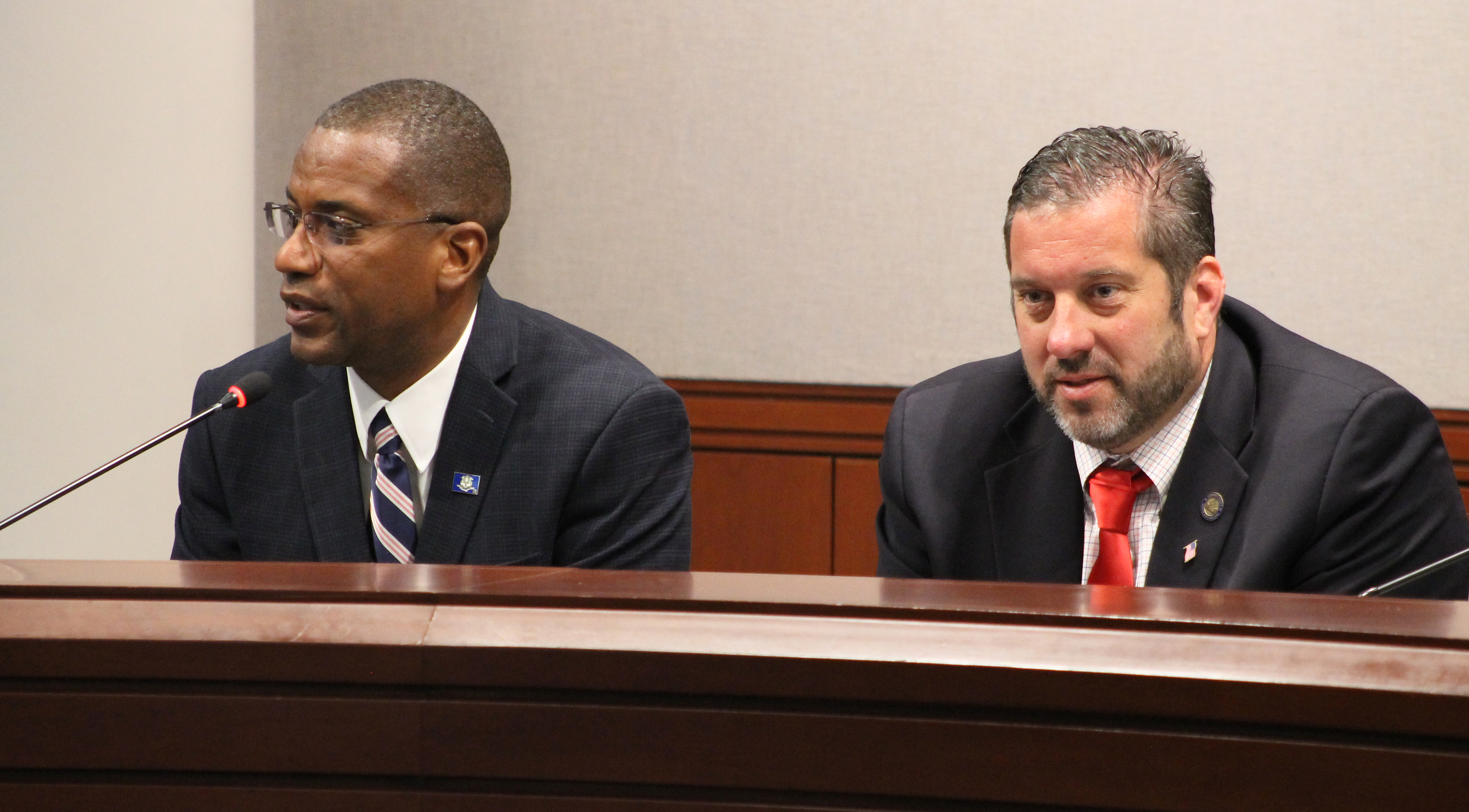Case, Logan Co-chair Legislature’s Bipartisan Health Center Caucus

Posted on May 28, 2019
HARTFORD – State Representative Jay Case (R-Winsted) and State Senator George Logan (R-Ansonia) co-chaired a bipartisan Health Center Caucus that met Tuesday morning at the Legislative Office Building. The caucus was formed to provide insight to legislators in regard to the overall benefits of community health centers and the issues that they currently face. According to the Community Health Center Association of Connecticut, community health centers provide primary medical, dental, and behavioral health care, to over 392,000 people in Connecticut on an annual basis.
“It’s important that we develop a line of communication between the legislature and our community health centers to determine what we can do to support them. They are integral to every city and town throughout the state by providing better access to a higher quality of health care to Connecticut residents,” explained Rep. Case. “I appreciate the advocacy efforts of the health centers to bring issues to our attention, such as the need to diversify funding sources.”
Specifically, community health centers gather funding primarily through various federal and state grants. However, 14% of the claims are processed through private insurers, 8% are enrolled within Medicare, while the majority of patients served are enrolled within Husky or Medicaid. Unfortunately, about 17% are uninsured, creating funding gaps. Regardless of insurance status, patients seeking care at community health centers are served.
“Our community health centers are vital resources in all of our cities and towns, and I am honored to co-chair this bipartisan panel along with Rep. Case,” Sen. Logan said. “We want to help our health centers thrive across our state. That success can take the form of good, quality jobs, it can mean improved access to care, and it can mean better access to crucial funding sources. It is my hope that this panel will act as a conduit to the full Connecticut General Assembly in order to increase opportunities for success.”
According to both Case and Logan, community health centers are highly beneficial to every community in which they are located because of the emphasis placed on delivering quality care to the unique needs of each individual. Over 26.5% of patients were served in a language other than English, which helps circumvent language barriers and increases patient confidence in the care they are receiving.
In addition to providing greater access to healthcare, community health centers are economic drivers providing opportunities for employees to develop career skills.
For additional information on community health centers, you can visit the association’s website at chcact.org.
###